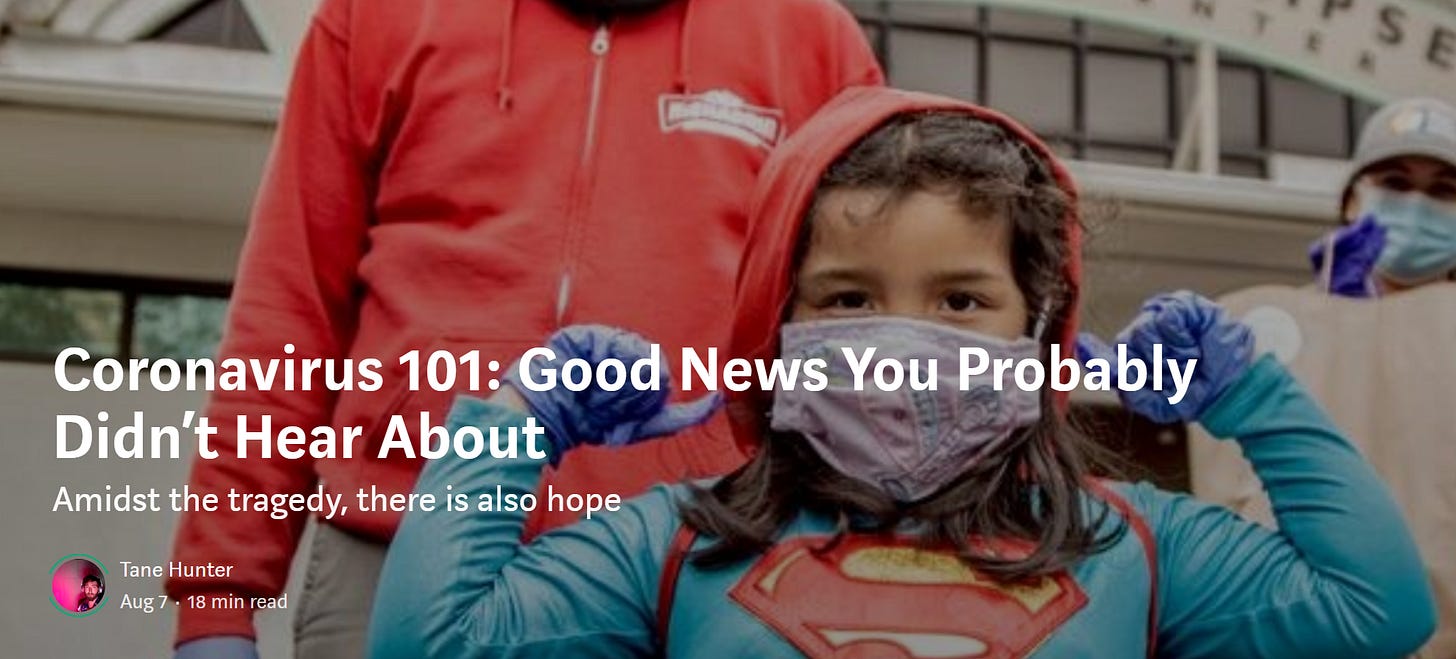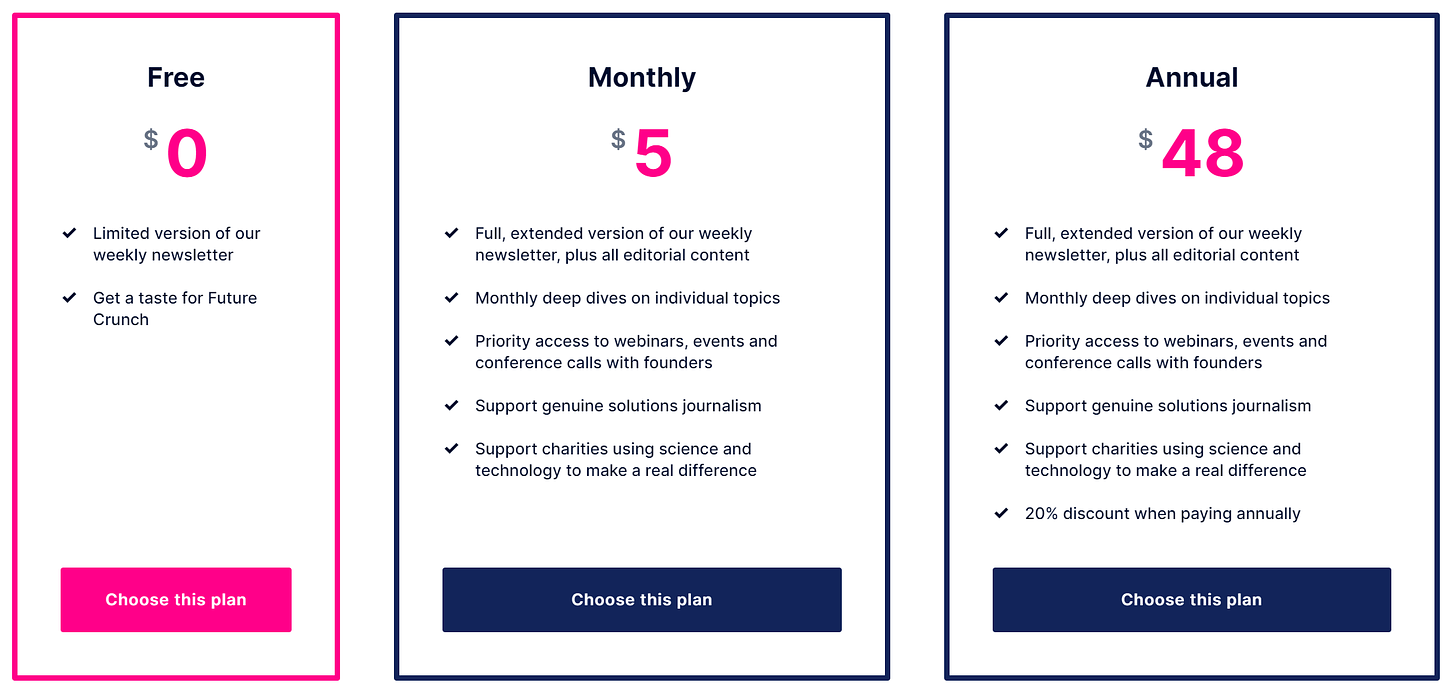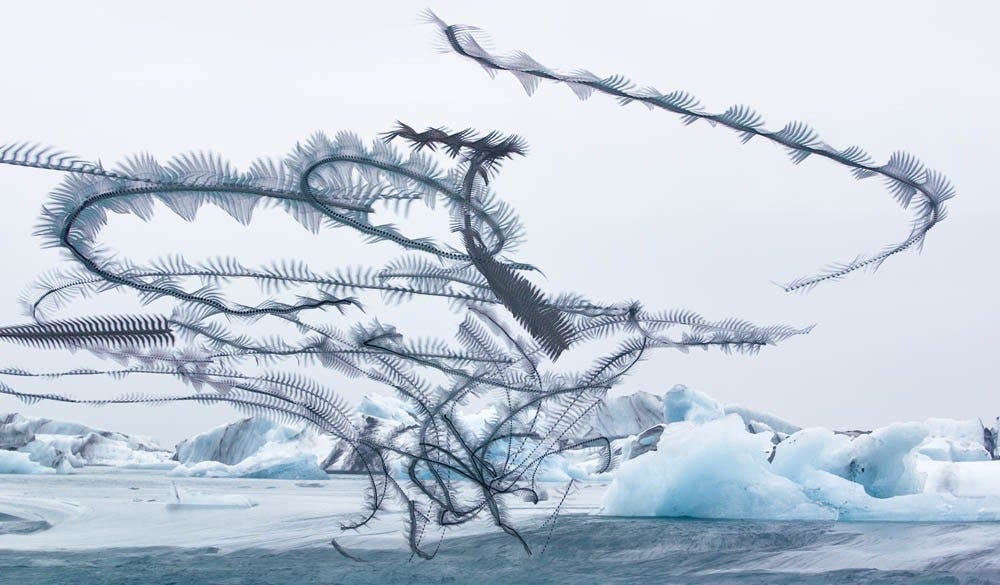It’s the 101st edition of this newsletter and we think that’s an excuse to celebrate. Not only is 101 a prime, a numeric palindrome and the standard numbering convention for an introductory course at university, it’s the Messier designation for the Pinwheel Galaxy in Ursa Major, the number of a torture chamber in Nineteen Eighty-Four and the name of an album by Depeche Mode. That’s pretty good company.
It’s also a marketing gimmick: a tool used to imply that you’re being given a little extra information beyond only 100 items. On that front we are guilty as charged, because to commemorate the occasion we’ve pulled together 101 good news stories about the coronavirus crisis. We’ve been collecting these since the pandemic began, rays of hope amongst the grief, suffering and uncertainty. We hope you enjoy them, please share far and wide.

We’ve come a long, long way together, through the hard times and the good.
The first edition of this newsletter went out on the 22nd May 2015, to 250 email addresses scraped together from friends, family and a few work contacts. It wasn’t pretty. The logo was a hack job and the tone was embarrassingly peppy. In our defense, the world felt very different. Barack Obama was the president of the United States, nobody had ever uttered the words “Brexit” or posted a #MeToo story on their feed, and children only spoke when spoken to and treated their elders with respect. Fortnite was our planned publishing schedule, not the latest thing ruining teenage lives, the Paris Agreement didn’t exist and Greta Thunberg had just turned 12.
A lot of things have changed since we sent out that first email, some of them for the worse. Forced migration, inequality, intolerance, ecological collapse, climate change - and all of that was before we got hit by a once-in-a-century pandemic. The future today feels more uncertain than it did back then not just because of COVID-19, but because the human race seems to be increasingly incapable of agreeing on anything. Rather than coming together to tackle the big challenges of our time, we appear to be drifting apart.
That hasn’t been the only story though. In the last five years, we’ve seen a billion people come online, hundreds of millions emerge from poverty and gain access to electricity and sanitation, and tens of millions saved thanks to vaccines, medicine and better maternal health. Same sex marriage has been legalised in 14 countries, female genital mutilation has plummeted, war, terrorism, murder rates, executions and suicide rates have all declined too.
The ozone hole has recovered, millions of square kilometers of land and ocean have been protected, and billions of trees have been planted. Plastic bans have spread across the planet, the wild populations of wolves, whales, tigers, gorillas and turtles have increased, the prices of solar, wind and batteries have fallen three or four times over, plant-based meats have exploded and an electric vehicle manufacturer is now the most valuable car company in the world.
We’ve landed orbital rockets on floating barges and robots on asteroids, photographed black holes and the shadow of a single atom, reached quantum supremacy and watched as the machines figured out how to fold proteins and mastered the most complex games ever invented. Seven of the world’s ten most valuable companies are now tech companies, we’re 3D-printing nuclear reactor cores, drones are delivering blood supplies across mountain ranges in Africa and genetic editing has moved from labs into hospitals, upending medicine forever.
Over the course of 101 editions, we’ve documented it all, and it’s been quite a ride. Along the way we’ve accidentally built a community of readers, more than 40,000 of you at last count. We started doing this before newsletters became cool and honestly, we didn’t think it would get so big. It’s all been organic, no growth hacking or strategic link swaps. We just kept on doing the thing and slowly but steadily you arrived. Many of you came via our annual good news lists, others from watching us speak at an event and of course more than a few via weird internet serendipity.
We’ve changed, and no doubt you have too. We’re a little older, less naïve, our description-experience gap has narrowed and thanks to a schoolteacher back in FC54 we’ve stopped using swear words to make our point. Most importantly, we’ve made a difference together. Thanks to the hundreds of you who have donated we’ve given away almost $90,000 to small charities making a real difference, with another $15,000 in the bank waiting to go. We could never have imagined that when we first started, and we’re deeply grateful to everyone who’s made it possible.
It’s time for a change.
Six months ago, our jobs became illegal. We used to make a living by speaking to large groups of people, but if we did that now we’d be arrested. While we’ve enjoyed our foray into virtual events, and hope to be back in front of audiences again soon, we also understand that the marketplace for ideas is changing, and we have to change along with it. After a lot of soul-searching and plenty of late nights scribbling on whiteboards, we’ve got a plan.
We’re going to double down on this newsletter. Instead of fortnightly, it will now arrive weekly. We’ll be covering the same subject matter as before - good news, amazing science, and our favorite bits of the internet - but with fewer stories each week, and more in-depth explanations. We’re adding a new section too, called Humans: Kind, where we’ll be profiling one amazing person from somewhere on the planet, who you’ve never heard of before.
After the success of our Future Brunch series, we’re also bringing back the webinars. Every few weeks we’ll be in conversation with someone who has something valuable to say about the state of the world in 2020, and we’ll be inviting you to join us. We’ll also be running live Q&As and events for our subscribers, to give everyone an opportunity to hang out as a community, first online and eventually, hopefully, in person.
Most excitingly, we’re kicking off a series called Solutions. Once a month, we’ll be doing a deep dive on one topic area. Basic income, indoor farming, public healthcare, hydrogen, plant medicine, clean energy, low-carbon building, decentralised currencies, re-wilding, regenerative agriculture. We are going to paint a picture of what a better economy looks like on the other side of this. There isn’t enough of that kind of journalism - solutions journalism - going around, and our plan is to fill the gap. You’ve probably seen this quote from Kevin Kelly before, we use it a lot:
“To be an optimist you don’t have to ignore the many problems we create; you just have to imagine improving our capacity to solve problems.”
That’s our goal for this next phase of the newsletter. We’ll be here, not just imagining the world’s capacity to solve problems, but documenting them, profiling the people involved, and describing how a better world can be built.
To do that though, we’re going to have to change our business model. While the good news stories will still be free, the rest will be a premium product. The charity component will continue, but instead of giving away 100% of revenues, we’ll be giving away one third. This will allow us to continue operating, and be able to give away even more than we did before.

Hang on a second, what happened to “Information Wants To Be Free”?
We have to admit, it’s an uncomfortable decision. While we’re excited about the possibilities of pioneering a new form of journalism, and the chance to create a sustainable business model, we’re also very aware that back in February 2020 we wrote this:
This thing is free and will stay that way for as long as we can keep it going (…) we come from a time when the internet was still a superhighway, where information was shared freely and where the collective goal was to move humanity forward. That version of the internet is still out there even if it’s buried beneath the noise, and we consider ourselves very much a part of that tradition.
This is still true. We still believe that. We didn’t see the coronavirus coming though, and it’s upended everything. The reality is that if we don’t change the way we operate, there might not be a business left once the dust clears. We’re not completely disappearing behind a paywall - there will still be plenty of great content for free subscribers, and a lot of what happens here will make its way to our social media feeds too. But we have to adapt, and we think this is our best option.
The good news is that for now, you don’t have to do anything. We’re going to give everyone plenty of time to try out the new product. For the next 101 days, all subscribers will receive the full version of this newsletter, plus the events, webinars, and Solutions deep dives. It’s a chance to see whether you think the new Future Crunch is something worth paying for. We’ll give you plenty of warning before the switchover.
If you do want to support us though, if you’d like to be one of the early new members, then you can subscribe below. As an incentive, we’re offering the first 50 people who sign up a free Future Crunch mug, because #marketing. Look at this thing… it’s an object of beauty.

We hope you’re excited about this new direction for us. We hope you understand why we’re making this decision. We hope you’ll join us. If you have any questions, let us know. We’ll be on deck answering as many emails as possible to make this whole thing work smoothly.
In the meantime…
Good news you probably didn’t hear about
The size of the global coal power fleet fell for the first time ever in the first six months of 2020, with more plants shutting than starting operations. Did someone just say, ‘tipping point’? Guardian
The world’s most valuable company has committed to becoming carbon-neutral by 2030, a pledge that covers its entire supply chain and the lifecycle of all its products, including the electricity consumed in their use. Guardian
The UK’s biggest pension fund, with over nine million members, is divesting from fossil fuels, a landmark move for the industry. Guardian
The world is losing its taste for meat. Production fell last year, and will do so again in 2020 (there have never been two consecutive years of decline). Globally, we’re already at peak pasture, and it now looks like we’re approaching peak beef. Bloomberg
Since 2007, the majority of the world’s countries - 113 countries - have reduced their armed forces, 100 have reduced military expenditure and both imports and exports of weapons have reached their lowest levels since 2009. GPI
A major new study in The Lancet has shown that the average number of children a woman gives birth to has fallen from 4.7 in 1950 to 2.4 in 2017, and will drop below 1.7 by 2100. Global population is now on track to peak in the middle of this century. BBC
Indonesian officials are vowing to end the controversial custom of bride kidnapping, after videos of women being abducted sparked a national debate. Jakarta Post
After more than 30 years of Islamist rule, Sudan has outlined wide-reaching human rights reforms including allowing non-Muslims to drink alcohol, abolishing public flogging, and scrapping the death penalty for renouncing Islam. BBC
Huge, huge win for indigenous rights in the United States. The Supreme Court has declared that because of a treaty signed in 1866, up to half of Oklahoma’s land must be returned as the sovereign possession of the Creek Nation. E-Tangata
More than one million people in the UK have given up smoking during the COVID-19 pandemic. More people quit smoking in the year to June 2020 than in any year since surveys began in 2007. BBC
Parents in OECD countries now spend twice as much time with their children as they did 50 years ago (except for France because, well, France). Economist
Vietnam has banned all wildlife imports and closed illegal wildlife markets, as part of the global response to the threat of zoonotic diseases. WAN
Researchers have shown that noise levels around the world have fallen by 50% in the last six months, the quietest Planet Earth has been since humans developed the technology to listen. They’re calling it The Anthropause. Vice
Britain’s woodlands now cover as much of the country as they did during the Middle Ages, thanks to 20th-century forestry and rewilding practices (Robin Hood eat your heart out). Times UK
25 years after gray wolves returned to Yellowstone, they’ve transformed the ecosystem and stabilized elk populations. “Elk aren’t starving to death anymore.” NatGeo
Indistinguishable from magic
Archeologists have excavated thousands of tools from a cave in central Mexico, showing that show Homo sapiens were living in North America 15,000 years earlier than we previously thought. This is a big one. Science Alert
The world's largest host of open source code has just finished burying 21 TB of digital film, containing all its active public repositories of code, underneath a mountain in the Arctic. Github
Did you know that life is right-handed? Apparently the genetic helix of all animals, plants, fungi, bacteria and viruses on Earth twists to the right (our resident scientists knew this one, but it’s news to everyone else on the team). Nautilus
51 former US special forces soldiers received psychedelic treatment in Mexico using 5-MeO-DMT and Ibogaine. They reported significant reductions in PTSD, depression and anxiety, and four out of five participants said it was the most personally meaningful and spiritually significant experiences of their lives. Chronic Stress
The internet has a new toy called GPT-3; the most powerful AI language model ever built. It’s basically an autocomplete: capable of writing creative fiction, generating functioning code, composing thoughtful business memos and much more. It’s also biased, like the humans it apes. The Verge
Climate groups and tech companies have created a coalition that will use satellite data, machine learning and earth-based sensors to monitor all of the world’s greenhouse gas emissions - down to individual power plants, ships and factories - in real time. Vox
The CRISPR family just grew bigger. The newcomer is called CasΦ (pronounced "Cas-phi"). It’s half the size of the better known Cas9 protein, allowing it to reach into the nooks and crannies of DNA that were previously inaccessible. FreeThink
Off the beaten track in the dark forest
Scott Ludlam has written us all a love letter from 2029, and there are some parts that made us want to cry. If you’ve never heard of him, he’s probably the single redeeming factor in Australian politics in the past decade. Read it. Please. Guardian
Looking for something small and beautiful to watch on lockdown? Try this 14 minute film, about a young girl on the streets of Mumbai, from legendary Indian stop motion artist, Suresh Eriyat. It took eight years to complete, a genuine work of art. Youtube
The newsletter revolution rolls on. Inside Hook have compiled their 80 best single operator newsletters on the internet. Some really good suggestions here.
For months, Ed Yong has wrangled the pandemic's complex science and politics into one journalistic masterwork after another. Nothing though, compares to his latest, searing, epic on the nightmare unfolding in the USA. Seminal. Atlantic
Meet Audrey Tang—a hacking prodigy, trans woman, and Taiwan's digital minister, responsible for kicking coronavirus ass. This is what 21st century leadership looks like. The sooner we realise that, the quicker we’ll be able to rebuild. Wired
The six best science fiction novels of 2020, according to Tom Hunter, the director of the Arthur C. Clarke Award. Come for the recommendations, stay for the deeply satisfying discussion. Five Books
If birds left tracks in the sky, what would they look like? For years Catalan photographer Xavi Bou has been capturing birds in motion, using digital manipulation to display their flight paths as flowing, contorting ribbons and, well, you really need to see this for yourself.

That is it for this edition, keep an eye out for FC102 next week.
If you have any questions, comments, or just want to let us know that 101 is a good number to get to, then we’d love to hear from you.
Much love,
Gus, Tane, Becs and the rest of the Future Crunch team






